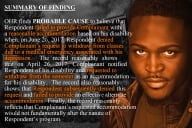You have /5 articles left.
Sign up for a free account or log in.
Sigh.
Maybe the tent has gotten too big. Maybe success has made people nervous, because now there is something to lose. Building has lead to tenuous-to-more stable creations, but in this economic and political climate, it can all disappear, or at least be stripped bare. Maybe the shine of being the “next-big-thing” has worn off and just being the thing has reached the apex. Whatever it is, it’s exhausting.
The “using versus building” debate has reared it’s ugly head again, this time, in the newly available book Digital_Humanities, published by MIT Press (you can access the PDF of the book here). The offending quote is: “The mere use of digital tools for the purpose of humanistic research and communication does not qualify as Digital Humanities.” David Golumbia, at his blog, uncomputing.org, responds by illustrating how problematic this definition is; 20 years ago, coding in HTML and creating websites would be considered “building” while today it is not. He also points out that some of the instigators of DH were, in fact, only users of tools, not creators.
All of this is true, but it isn’t until Katherine Harris comments just how dangerous this exclusionary definition of DH is for young scholars that I find some of my concerns addressed:
As we continue to debate the efficacy of DH, its definition, its terminology, its participants, I’m becoming fatigued. What the authors of the Short Guide did was supply a primer to administrators (for that’s who they said it’s intended to educate) to deny tenure to a whole bunch of DHers at lower-tier non-R1 universities and colleges where bringing DH to the masses (aka our students) means bringing it into the classroom for screwing around. They unauthorized faculty like me who can’t afford to build tools. By not allowing for a distinction in using digital tools (my colleague *knows* about Twitter, tweets, but does he/she *really* use it as a DHer in the way that I do?), administrators can articulate that using Twitter in the undergraduate classroom is just another form of dialogue, that there’s nothing unique to the implementation of a new type of rhetoric.
It was irresponsible and, yes, elitist. Please come work in my university, in my department, for a year. I do DH wherever I can, and that means student-driven research.
Bringing DH to the masses through undergraduate education (introducing them to the tools to spark their imaginations, show them the possibilities of “hacking”) is so important because for the most part, undergraduates aren’t getting this sort of education. I’ve written about this before, but at schools like mine, the focus is one learning to use commercial tools for specific and dictated outcomes. Audrey Watters has just written about how most institutions of higher education don’t provide Maker Spaces for their students to just go and learn how to build something. The new privilege really is “making over consuming/using,” and most of us are on the outside looking in.
This is NOT NEW. Ernesto Priego has written about the rise of the super-humanists. I’ve written about how the technical skills needed can be a major barrier to entry for aspiring digital humanists who are currently off the tenure-track (here and here and here and here and here). Bethany Nowviskie emphases this point when she highlighted this challenge in her MLA talk. Now, if Bethany Nowviskie says it and people continue to either ignore this reality, then there is really an issue within DH.
It seems to be a challenge for a discipline (or maybe it’s a genre, I don’t know) that was once so firmly positioned in the margins to admit that perhaps, there are how margins within its own tent that are being excluded and/or silenced. Technology and tools do discriminate when the ability to create and use those tools is unevenly distributed. The infrastructure clearly favors a certain kind of DH, to the exclusion of many, many others.
Case in point. A group of us applied to do a roundtable at DH 2013, the DH conference. We received…less than stellar reviews. The feedback was contradictory at times but mostly claimed we tried to do “too much.” We were nonetheless accepted…to give one long paper. Six people, all speaking from various marginalized positions, are now expected to somehow give one paper. I know that this was a compromise and that people fought for our inclusion. At the same time…
At the same time, it feels an awful lot like marginalization.





